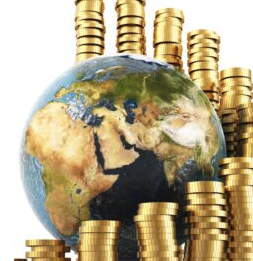Woke and Wealth

I read once that if everyone started out with the same amount of good land and the same amount of money or what money could buy, despite the initial equality, some would become rich, and others would become poor. Why would this happen? Because the infinite number of variables [weather, disease, accident] would inevitably favor some in a particular year[s], and moving on into the future, that advantage would widen the gap between the successful and those left behind. One advantage creates the next. Money makes money.
But given the hypothetical nature of the situation, one might ask: why doesn’t the successful [lucky] one help the less fortunate so that all might prosper? The question may be asked in a variety of ways. Why do we accept life to be a zero-sum game, wherein your gain is my loss? Would the rich not be happier themselves if their countrymen lived a better life? What is it about this species homo sapien that seemingly prevents us from treating one another as family? Wherein lies the power to overcome the drive to accumulate more and more? Or put positively, wherein lies the power to share? What is our problem? It is a serious and persistent problem: in the history of humankind, 75% of us have lived as slaves of the rich and powerful.
The Buddha, we are told, was a young prince who lived a protected life of luxury. And then he became aware of sickness, old age, and death. But seeing a monk, he also became aware of the search for a meaningful life, a life that he did not have. And so he left behind his riches and power, setting out on a search, heading he knew not where. After looking for the answer in a variety of directions, he came to a not surprising simple analysis of human life. Life is suffering, he concluded, not the physical, but rather the mental dissatisfaction that plagues us. Why is this so? Because of desire. Desire for what? Answer: the cause of our mental/spiritual/psychological suffering is our desire to have matters be the way we want them to be. We create an image of reality that centers around our egocentricity. The irony is that what we “think” we want is not at all what makes us happy. The reality we project as Truth is not the Reality that is. We live in a delusion of our own creation, unhappily so.
In economic terms, the power to share, the power not to be greedy, requires breaking out of the egocentric world we have created for ourselves. It requires a higher level of awareness, an enlightenment, an awakening, if you will.
It is no accident that the rich and powerful have taken this concept captive, appropriating it for their own selfish purposes, such that awakened, now shortened to “woke,” implies something negative rather than positive. Just as the Buddha calls us to enlightenment, so too did Jesus remind us that we need to be born anew. Essential to that rebirth and awakening is the realization that sharing is the path to fulfillment, and hoarding is the wide and easy path to both self- and social -destruction.
Both the history of homo and the addictive nature of the pursuit of ever more wealth would seem to tell us that the power to share is a utopian mirage. That may be so, inasmuch as the solution to the problem is nothing less than a spiritual revolution wherein we realize that we are all brothers and sisters. That is the message of Buddha and of Jesus and of every other moral leader in our human history. And such a revolution may be the only key to our survival.

